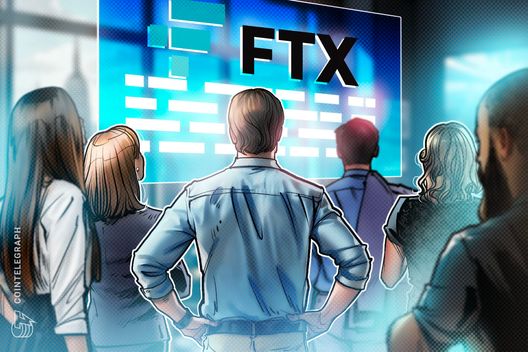The ongoing saga of the FTX bankruptcy is taking a new turn as creditors brace for disappointing news about their expected payouts. Recent statements from creditor representative Sunil indicate that payouts may fall significantly short due to the current market values of major cryptocurrencies like Bitcoin, Ether, and Solana. This revelation raises concerns for those hoping to recoup losses from one of the largest cryptocurrency exchanges to collapse.
“Creditors may be in for a rude awakening,” stated Sunil, highlighting that the adjustment of payouts according to the fluctuating prices of digital assets could drastically reduce the amounts they receive.
The cryptocurrency market has been notoriously volatile, and the valuations of assets such as Bitcoin and Ether have seen dramatic shifts in recent months. With prices fluctuating under economic pressures and regulatory scrutiny, the expectations for creditors may not align with the realities of asset valuations.
As FTX moves through its restructuring process, the focus remains on how the adjustments to these cryptocurrencies will impact the eventual payouts to creditors. The situation serves as a reminder of the inherent risks associated with investing in the digital currency space, an industry that continues to face scrutiny even as it seeks to establish itself within the broader financial system.
FTX Creditors’ Potential Payouts
Key points regarding the impact of current cryptocurrency prices on FTX creditors include:
- Creditors’ Expectations: Many creditors anticipated full or substantial payouts based on previous valuations.
- Current Cryptocurrency Prices: Adjustments based on the current prices of Bitcoin, Ether, and Solana significantly affect payout estimates.
- Representative Insight: Sunil, a creditor representative, highlights the stark reality of reduced payouts.
- Market Volatility: The fluctuating nature of cryptocurrency prices adds uncertainty to the recovery process.
- Impact on Financial Recovery: Many creditors may face financial strain as their expected recoveries decrease.
- Broader Financial Implications: These developments could influence potential investors and stakeholders in the crypto market.
Understanding these key aspects can help affected creditors navigate their financial situations and inform others about the risks associated with investing in volatile markets.
FTX Creditors Face Uncertain Payouts Amid Volatile Crypto Market
The recent statement by creditor representative Sunil reveals a concerning outlook for FTX creditors, who may only recover a fraction of their anticipated payouts. This situation brilliantly highlights the broader issues within the cryptocurrency market, particularly in the wake of significant volatility affecting major cryptocurrencies like Bitcoin, Ether, and Solana.
Competitive Advantages: The visibility of the FTX case has attracted considerable attention, potentially enhancing scrutiny on crypto regulations. This could foster a more robust regulatory framework that benefits honest players in the space, giving them a competitive advantage by establishing a more level playing field. Additionally, developments surrounding the FTX bankruptcy could encourage financial institutions to develop more resilient cryptocurrency products, catering to a risk-averse clientele looking for safer investment options.
Disadvantages: On the flip side, the uncertainty surrounding FTX’s payouts could lead to distrust among potential investors. Established players in the space, such as Binance and Coinbase, might find themselves facing more regulatory hurdles as policymakers react to these high-profile failures, which could complicate their operational strategies. Moreover, any further decline in these cryptocurrencies due to the fallout might adversely affect their liquidity and market standing.
Beneficiaries and Challenges: Investors holding diverse and stable crypto assets could find themselves relatively insulated from the impending market shakeup. Moreover, smaller, more agile crypto startups might seize this opportunity to fill the void left by FTX while emphasizing security and transparency. On the other hand, traditional investors and entities heavily invested in cryptocurrencies could encounter significant challenges, experiencing heightened anxiety and potential losses while navigating this turbulent landscape.

















